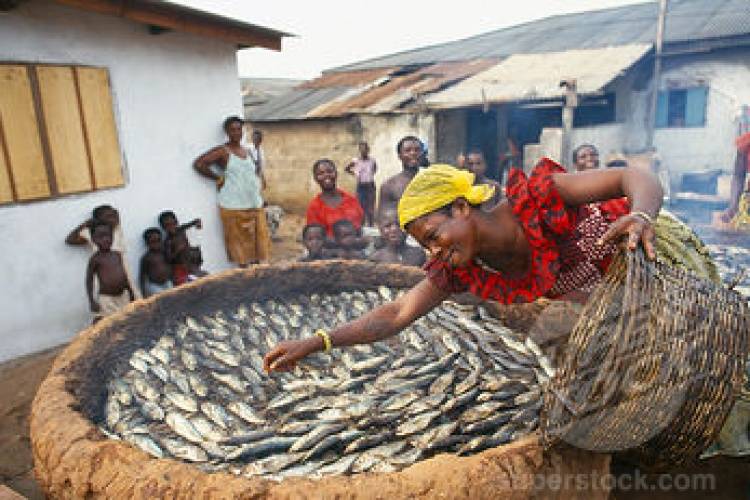USAID-sponsored project Feed the Future Ghana Fisheries Recovery Activity (GFRA), in collaboration with its strategic partners—comprised of key state standards and certification agencies and regulators in the domestic fisheries industry—has organized a symposium on the implementation a newly-introduced safe fish certification and licensing scheme (SFCLS).
The scheme, which is currently being piloted in selected markets in the Greater Accra Region, seeks to promote the safe, decent and hygienic processing and handling of fish from catch to plate.
As per the requirements, handlers of fish such as fishmongers and fish vendors are to undergo training on the proper production and sale of fish as a prerequisite to certification. This will ensure that only safe, hygienic and quality fish are sold to consumers on the market.
Aside entrenching best practices in fish production and consumption, the licensing regime will drive positive change across the entire fisheries value chain, ultimately leading to safer and higher-quality fish products for consumers.
“Ensuring safe fish production and consumption is not just a goal; it’s the responsible thing to do for present and future generations,” said Andrew Read, USAID Ghana’s acting deputy mission director.
He added: “By harnessing the power of certification and licensing schemes and building a supportive environment for change, we can create a future where every fish caught, processed and consumed in Ghana is not only safe and hygienic, but also environmentally and socially responsible.”
Themed: “Safeguarding Fisheries; practices for sustainable safe and hygienic fish production in Ghana using the Safe Fish Certification and Licensing Scheme”, the symposium pooled key fishery sector stakeholders namely the Fisheries Commission, Food and Drugs Authority (FDA), Ghana Standards Authority (GSA), the Environmental Health and Sanitation department of local government as well as fish processors, trader associations and related actors with the fisheries ecosystem.
Minister for Fisheries and Aquaculture Development, Mavis Hawa Koomson, in a speech read on her behalf, noted: “Let’s work together to ensure that the fish we produce and consume is not only a source of nourishment, but also a symbol of our commitment to fish safety and a healthier, sustainable future.
The one-day symposium featured in-depth discussions on technical advancements in fisheries value chain management, progress made on regulatory frameworks, and fish food safety concerns.
It also featured hands-on demonstrations and cooking exhibitions that illustrated appropriate handling and processing methods to maintain fish quality from catch to plate.
About 3,500 women fish processors and traders from coastal communities have been trained on hygienic handling and processing, financial literacy and entrepreneurship as part of the project.
